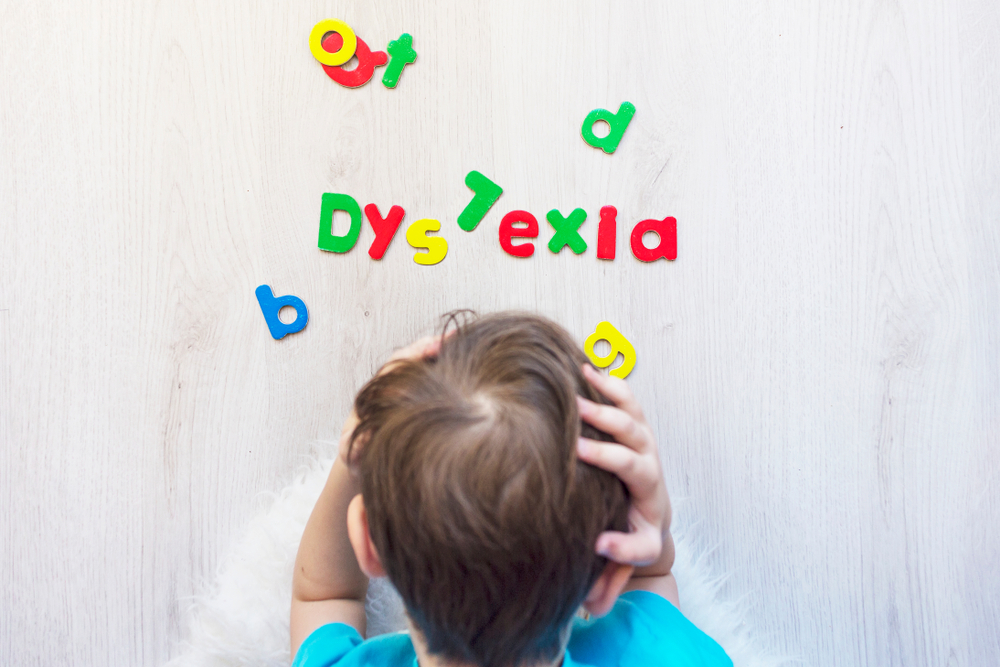How Parents Can Identify Dyslexia In Their Children

Parents serve a number of vital roles for their young children, and one of these as your kids develop in their youth involves watching for the signs of any unusual condition or situation they might be dealing with. Learning disabilities are among the situations that should be considered here, and dyslexia in particular -- one of the most common learning disabilities -- is a good example.
At Learning Technics, we're proud to offer a wide range of learning disability treatments, including help with dyslexia treatment for kids through our physio-neuro therapy (PNT) program. We're also here to help parents who are unsure whether some of the signs or behaviors they're seeing in their child may be indicators of dyslexia, plus how to proceed if they are. Here's a basic guide on this important topic.
What is Dyslexia?
First and foremost, we've found that a number of people harbor confusion regarding what dyslexia actually is. Many people believe that the condition only refers to seeing letters out of order when looking at words; while this indeed is often a symptom involved with dyslexia, it's not the only one by any means. Dyslexia is actually a neurological disorder that can impede reading, writing and other language skills; in fact, dyslexia symptoms may even make it difficult for people to properly process information they see and hear.
Another important point here: Dyslexia does not typically impact general intelligence or cognitive ability. In other words, children and adults with dyslexia are just as smart as anyone else, but their brain simply processes information differently. Some people with dyslexia have difficulty seeing the correlation between letters and the sounds they make (hence the "seeing letters out of order" symptom), while others may have trouble with short-term memory, sequencing or with being able to properly read quickly.
Causes of Dyslexia
The root cause of dyslexia isn't entirely understood as of now, despite continuous research looking into them. That said, the information we do have indicates that it may stem from differences in brain development and function among people with the condition. Dyslexia may also be genetic in some cases, as it's often seen to run in families.
In addition, it's known that dyslexia is neurobiological at its core. Many people with dyslexia experience what are known as problems with "decoding," for instance, which refers to the brain's difficulty in translating what are seen as written words into speech. Because of this fundamental issue, dyslexia symptoms may manifest themselves very early on in a person's life -- sometimes even before they learn to read or write.
Signs and Symptoms of Dyslexia
Now that we've answered the question "what is dyslexia," let's move on to some of the signs and symptoms associated with the condition, which may help you determine whether your child is affected. Please note that not all children with dyslexia will experience all of the symptoms listed below; in some cases, dyslexia may only present itself in one or two ways.
That said, here are some common signs and symptoms of dyslexia to look out for:
- Spelling issues: For some children, one of the first and most noticeable signs of dyslexia is difficulty with spelling, especially as they move on from kindergarten and begin learning to spell more complicated words. If your child consistently misspells words, or spells them differently each time they write them, this may be a sign of dyslexia.
- Problems with phonemes: Digging a bit further into the spelling realm (after all, many kids struggle with spelling early in their lives, including those without dyslexia or any other learning disability), children with dyslexia often struggle or spend lots of time on what are known as phonemes. These refer to the individual syllables or sounds that make up words, such as "c-a-t" or "b-o-a-t." Many kids with dyslexia have difficulty breaking down and processing these phonemes.
- Easily distracted: Especially when reading or writing, but also in some other situations, children with dyslexia may become easily distracted or lose focus on what they're doing. If this occurs frequently and causes issues with completing tasks, it could be a sign of dyslexia.
- Trouble with reading: This is probably the most well-known symptom of dyslexia, but it's worth mentioning nonetheless. If your child is having difficulty learning to read, or if they're able to read but do so slowly and with great difficulty, dyslexia may be the cause. Additionally, children with dyslexia often avoid reading whenever possible, as it's such a frustrating and difficult task for them.
- Frustration and resisting reading or writing: In many cases, the frustration caused by dyslexia leads children to actively resist reading and writing tasks, as they know how difficult and frustrating these activities can be. If your child tries to avoid reading or writing whenever possible, this may be a sign that they're struggling with dyslexia.
- Trouble with reading comprehension: A related issue is that children with dyslexia often have difficulty remembering what they've read, even if they've read it multiple times. If your child frequently forgets what they've just read, dyslexia may be to blame -- especially if you notice this in coordination with other symptoms we've gone over here.
If you notice any of these signs and symptoms in your child, it's important to consult with an expert and start treatment today. As we noted above, many of these individual symptoms can also signal other issues, or may even just be temporary concerns that don't relate to any specific learning disability. But if you spot multiple such signs on a regular basis, bringing your child in for an evaluation is a good idea.
For more on this important area, or to learn about any of our child dyslexia treatment programs or other learning disabilities treatments, speak to our caring staff at Learning Technics today.